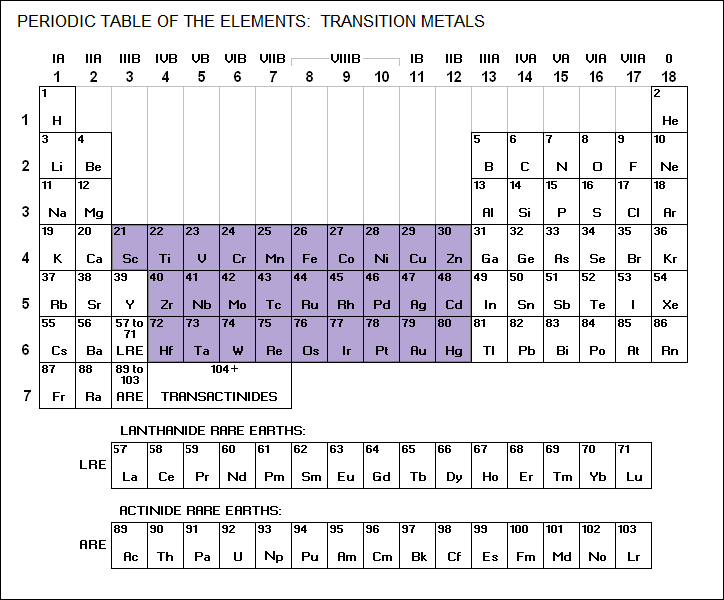
* Nickel is a member of the transition metals family:

____________________________________________________________________
NICKEL / Ni / 28
A silvery, lustrous, malleable, ductile metal with good resistance
to corrosion. Five isotopes are found in nature:
Ni<58/28> / 68%
Ni<60/28> / 26%
Ni<63/28> / 4%
Ni<61/28> / 1%
Ni<64/28> / 1%
All are stable.
atomic weight: 58.6934
abundance: 23rd
density: 8.902 gm/cc
melting point: 1,453 C
boiling point: 2,732 C
valence: 0 1 <2> 3
____________________________________________________________________
Nickel is produced from sulfide ores, mostly mined in Canada, in quantities of hundreds of thousands of tonnes a year. About half the production ends up in stainless steel alloys, and the corrosion-resistant metal is also used as a plating element. There is a range of other useful nickel-based alloys, such as "Monel", which is 70% nickel and 30% copper with traces of silicon, iron, and manganese; it is hard and resists corrosion by seawater, making it useful for propeller shafts. Another useful nickel-based alloy is "Nichrome", which nickel with from 11% to 22% chromium plus traces of silicon, iron, and manganese; it does not oxidize when heated and is used for heating elements in toasters and the like. Powdered nickel is used as an industrial catalyst; it was once commonly used in nickel-cadmium ("nicad") storage batteries, but they are now generally obsolete.
